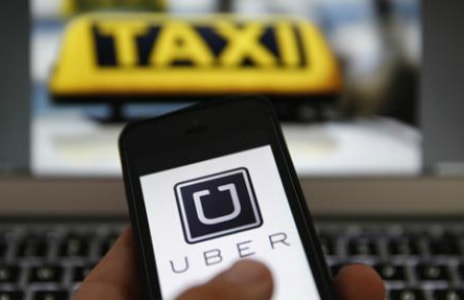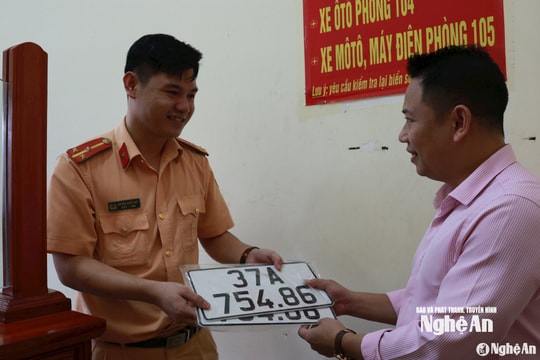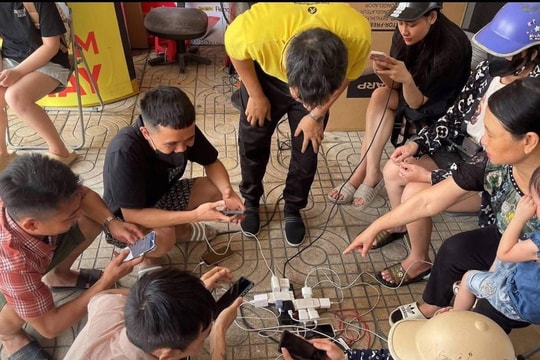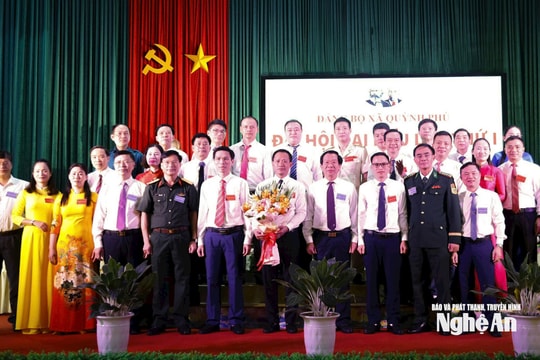Hanoi Taxi Association proposes 'urgent stop to Uber, Grab'
Fearing social unrest as the number of Uber and Grab cars has exceeded 50,000, the Hanoi Taxi Association has proposed stopping the pilot program for this service.
The above proposal was made by the Hanoi Taxi Association in a recent petition sent to competent authorities.
The association said that with 44,000 vehicles operating as taxis in Hanoi and 36,000 in Ho Chi Minh City, the total number of taxis and vehicles operating as taxis under the form of electronic contracts has far exceeded the planning.
“It is necessary to immediately stop increasing the number of vehicles participating in the pilot, and at the same time, the Ministry of Transport must immediately issue a document asking localities to stop issuing badges for these vehicles, not to stop expanding the number of businesses participating in the pilot,” the Association's document stated.
 |
| Hanoi Taxi Association proposes to stop Uber and Grab |
In the petition, the Association also "accused" a series of violations by Uber and Grab when operating in Vietnam. For example, Grab still maintains the carpooling service (Grabshare) despite instructions from the Ministry of Transport. Or although Da Nang city has issued many documents requesting Grab and Uber to stop advertising and operating, in reality, there are still several thousand vehicles of this type operating here...
Citing collected data, the Association estimates that each year Uber and Grab transfer about 3,600 billion VND abroad, an average of about 10 billion VND per day.
“Because there is no accurate data on the number of vehicles, trips, real revenue of Grab and Uber as well as the revenue of vehicle owners, it is not known how much money these units have transferred out of Vietnam and how much budget revenue they have lost,” the document stated.
Considering that transportation businesses like Uber and Grab are conditional businesses, the Association also recommended that competent authorities must require Uber and Grab to establish companies in Vietnam, have licenses to provide transportation services, and comply with transportation business conditions in Vietnam.
Before there are official regulations to manage this type of business, the management agency needs to issue specific regulations on the size, color, logo placement... of the pilot vehicles to ensure clarity and easy recognition. The local Department of Transport is the place to print and issue identification logos.
This association requires companies like Uber and Grab to comply with Vietnamese law and not violate international practices. Specifically, they must place servers in Vietnam, use Vietnamese Internet domain names, and data must be connected to the monitoring system of the Ministry of Transport. Technology companies must periodically transmit information automatically according to standards to the General Department of Roads and the Department of Transport where they are managed for centralized data analysis.
Grab and Uber must also share all data on the number of vehicles, vehicle lists, journey monitoring data, number of continuous driving hours exceeding 4 hours, number of times exceeding the speed limit, number of trips made... with state management agencies.
In addition, some shortcomings of Decree 86/2014The Hanoi Taxi Association also proposed to amend the regulations on automobile transportation business.Specifically, the Decree needs to add regulations on the method of calculating fares according to the online car booking application software for taxis. For vehicles with less than 9 seats using software to connect and calculate fares through the online car booking application software, it is necessary to name the activity correctly according to the nature of the activity as "online car booking taxi" to facilitate management.
The controversy surrounding the competition between Uber, Grab and traditional taxis has not ended. While Uber and Grab are expanding their market and increasing the number of vehicles, many traditional taxi companies are struggling to compete and survive. Losing market share, a large number of employees of taxi companies such as Mai Linh and Vinasun have had to quit their jobs. In the first half of 2017, 6,000 Mai Linh drivers quit their jobs, 8,000 Vinasun drivers... Traditional companies are also looking for ways to change their operating and management methods to "retain" consumers.
According to VNE
| RELATED NEWS |
|---|








